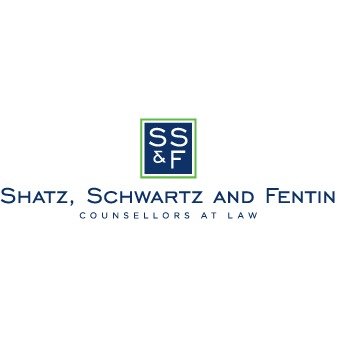Best Conveyancing Lawyers in Massachusetts
Share your needs with us, get contacted by law firms.
Free. Takes 2 min.
Free Guide to Hiring a Real Estate Lawyer
Or refine your search by selecting a city:
List of the best lawyers in Massachusetts, United States
About Conveyancing Law in Massachusetts, United States
Conveyancing in Massachusetts refers to the legal process of transferring property ownership from one party to another. This includes the preparation, execution, and recording of legal documents such as deeds, mortgages, and purchase agreements. Unlike some states, Massachusetts is an attorney state, meaning that attorneys are often required to be involved in real estate closings. The process is heavily regulated, and there are specific legal requirements for both buyers and sellers to ensure that the transfer of property is valid and enforceable under Massachusetts law.
Why You May Need a Lawyer
There are several situations in which individuals might need a lawyer for conveyancing in Massachusetts. Common scenarios include:
- Buying or selling a home or commercial property.
- Resolving disputes over property boundaries or title defects.
- Dealing with mortgage agreements or refinancing transactions.
- Transferring property due to divorce, inheritance, or gifting.
- Ensuring compliance with state-specific disclosure and recording laws.
- Addressing issues found in the property title search, such as liens or ownership claims.
- Preparing and reviewing purchase and sale agreements to protect your interests.
Engaging a qualified lawyer helps smooth the process, identify and resolve potential legal issues, and protect your investment.
Local Laws Overview
Conveyancing in Massachusetts is governed by a combination of state statutes and local regulations. Key aspects include:
- Attorney Requirement: In Massachusetts, a licensed attorney must oversee the closing process and draft most conveyancing documents.
- Title Examination: A thorough title search is mandatory to ensure that the seller holds clear title and to disclose any liens or encumbrances.
- Recording of Deeds: All property transfers must be recorded at the appropriate Registry of Deeds to be enforceable and protect against third-party claims.
- Homestead Protection: Massachusetts law allows homeowners to declare a homestead exemption, providing some protection from creditors.
- Disclosure Requirements: Sellers must disclose certain known issues related to the property, such as lead paint, septic systems, or material structural defects.
- Tax Implications: Both buyers and sellers must be aware of local transfer taxes and property tax adjustments that occur during conveyancing.
Due to the complexities of these laws, professional legal guidance is recommended for anyone involved in property transfers.
Frequently Asked Questions
What is conveyancing in Massachusetts?
Conveyancing is the process of legally transferring property ownership from one party to another. It involves contracts, title searches, and the recording of legal documents.
Do I need a lawyer to buy or sell property in Massachusetts?
Yes, Massachusetts law typically requires lawyers to be involved in real estate closings, and many lenders also require attorney oversights for mortgage transactions.
What is a title search?
A title search reviews public records to verify the legal ownership of a property and identify any claims, liens, or encumbrances that could affect the transfer.
What are the key documents in a real estate closing?
The primary documents include the purchase and sale agreement, deed, mortgage documents (if applicable), settlement statement, and various disclosure forms.
How long does the conveyancing process take?
It generally takes between 30 to 60 days, but this can vary depending on financing, title issues, inspections, and other factors.
What closing costs should I expect?
Closing costs typically include attorney fees, title search and insurance fees, recording costs, real estate agent commissions, and applicable taxes.
Who pays the closing costs?
Both buyers and sellers are responsible for various closing costs, which can be negotiated during the transaction. Customary practice may assign particular costs to each party.
What is a Registry of Deeds in Massachusetts?
It is a local government office where property deeds and other real estate documents are officially recorded and made part of the public record.
What protections do I have as a homebuyer?
In addition to required disclosures and title insurance, Massachusetts law and professional legal oversight help protect buyers from unforeseen legal issues.
Can I transfer property without a sale (such as gifting or inheritance)?
Yes, property can be transferred through gifting or inheritance, but it is advisable to consult a lawyer to ensure the transfer complies with Massachusetts law and to handle any tax implications.
Additional Resources
For further information and resources on conveyancing in Massachusetts, consider reaching out to the following organizations:
- Massachusetts Bar Association
- Massachusetts Registry of Deeds offices
- Massachusetts Board of Real Estate Brokers and Salespersons
- Consumer Affairs and Business Regulation (Division of Banks and Real Estate)
- Local legal aid societies for free or reduced cost legal assistance
Next Steps
If you believe you need legal assistance with conveyancing, start by gathering all relevant property documents and details about your intended transaction. Contact a qualified Massachusetts real estate attorney who specializes in conveyancing. Schedule a consultation to discuss your situation, clarify the scope of needed assistance, and obtain an estimate of costs. Being proactive will help you avoid legal complications and ensure that your property transfer proceeds smoothly and legally.
Remember, every transaction is unique. Consulting an experienced legal professional is the best way to protect your interests during the conveyancing process in Massachusetts.
Lawzana helps you find the best lawyers and law firms in Massachusetts through a curated and pre-screened list of qualified legal professionals. Our platform offers rankings and detailed profiles of attorneys and law firms, allowing you to compare based on practice areas, including Conveyancing, experience, and client feedback.
Each profile includes a description of the firm's areas of practice, client reviews, team members and partners, year of establishment, spoken languages, office locations, contact information, social media presence, and any published articles or resources. Most firms on our platform speak English and are experienced in both local and international legal matters.
Get a quote from top-rated law firms in Massachusetts, United States — quickly, securely, and without unnecessary hassle.
Disclaimer:
The information provided on this page is for general informational purposes only and does not constitute legal advice. While we strive to ensure the accuracy and relevance of the content, legal information may change over time, and interpretations of the law can vary. You should always consult with a qualified legal professional for advice specific to your situation.
We disclaim all liability for actions taken or not taken based on the content of this page. If you believe any information is incorrect or outdated, please contact us, and we will review and update it where appropriate.
Browse conveyancing law firms by city in Massachusetts
Refine your search by selecting a city.













